Published: March 29, 2024
AI Quick Takes with TalPoint – Week of March 25
By TalPoint Marketing weekly wrap up
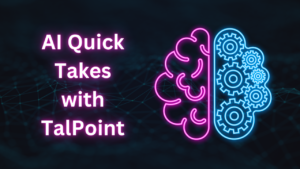
Read time: under 4 minutes
AI Spotlight
In One Key A.I. Metric, China Pulls Ahead of the U.S.: Talent
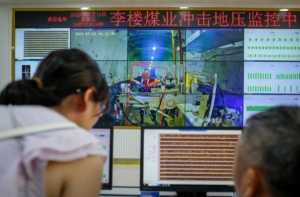
A.I. Talent Production and Distribution
China has surpassed the United States in producing A.I. talent, generating nearly half of the world’s top A.I. researchers compared to about 18 percent from U.S. institutions. This shift marks a significant change, with China previously accounting for one-third of global top talent. Despite this, the United States remains a hub for A.I. innovation, partly due to the contribution of Chinese-born researchers, who now constitute 38 percent of the top A.I. talent in the U.S.
Geopolitical Implications and Industry Trends
The competition between China and the United States in A.I. technology is intensifying, with implications for global productivity, innovation, and industry leadership. China’s investment in A.I. education, with thousands of undergraduate programs launched since 2018, contrasts with the U.S.’s focus on generative A.I. breakthroughs. The dynamics of this rivalry are influenced by factors like geopolitical tensions and the policies of both nations toward attracting and retaining A.I. talent.
Policy Challenges and the Future of A.I. Research
The presence of Chinese A.I. researchers in the United States poses policy dilemmas, balancing the need to counter espionage risks against maintaining a flow of top talent. Despite restrictions and the impact of COVID-19, many Chinese students continue to study in the U.S., contributing significantly to its A.I. advancements. However, policy missteps and changing global dynamics could impact the United States’ ability to remain the forefront of A.I. research, highlighting the importance of strategic talent management in maintaining global leadership in A.I. technology.
Trending AI Technologies
Ready or not, AI chatbots are here to help with Gen Z’s mental health struggles
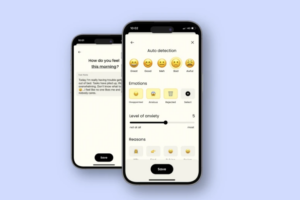
Earkick, a mental health chatbot app featuring a bandana-wearing panda, offers comforting and sympathetic responses akin to those of therapists, including guided breathing exercises and stress-management tips, without positioning itself as therapy. Its co-founder emphasizes the app’s role as a supportive tool rather than a therapeutic solution. This distinction is crucial in the digital health industry, particularly as these AI-powered chatbots, designed to support mental health among teens and young adults, remain unregulated by the FDA due to their non-diagnostic and non-treatment nature. Critics and psychologists recognize the potential of chatbots to aid with minor mental health issues, despite limited evidence of their effectiveness and concerns over their inability to replace traditional therapy. The industry faces scrutiny over safety and efficacy, with some apps, like Woebot, choosing structured scripts over generative AI to prevent misinformation. Despite these challenges, the accessibility and anonymity of chatbots make them a tempting option amidst the therapist shortage, sparking debates on their role and regulation in healthcare.
Anthropic claims its new AI chatbot models beat OpenAI’s GPT-4
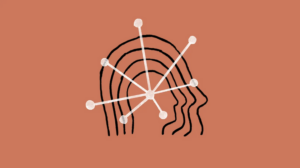
Anthropic Launches Claude 3 to Rival OpenAI’s GPT-4
Anthropic, an AI startup supported by Google and substantial venture capital, has announced the launch of Claude 3, its latest GenAI technology. Touted to outperform OpenAI’s GPT-4, Claude 3 includes models named Haiku, Sonnet, and Opus, with Opus being the most advanced. These models demonstrate improved capabilities in analysis, forecasting, and performance on specific benchmarks, challenging competitors like ChatGPT, GPT-4, and Google’s Gemini 1.0 Ultra. Claude 3 also introduces multimodal capabilities, allowing it to analyze text alongside images, a feature similar to GPT-4 and Gemini, but with limitations such as not identifying people and struggling with low-quality images and specific spatial tasks.
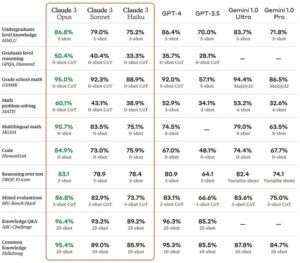
Enhanced Features and Future Prospects
Claude 3 offers advancements in following multi-step instructions, structured output, and multilingual conversation, with an emphasis on a nuanced understanding of requests and more engaging responses. Anthropic has significantly expanded Claude 3’s context window to support up to 200,000 tokens, with select customers accessing a 1-million-token window, matching Google’s Gemini 1.5 Pro. Despite these improvements, Claude 3, like other GenAI models, is not without its challenges, including bias and hallucinations. Anthropic commits to frequent updates to refine Claude 3, indicating ongoing enhancements to its algorithm and interaction capabilities.
Pricing and Anthropic’s Vision
With the release of Opus and Sonnet available via web, API, and various platforms, and Haiku to follow, Anthropic provides a pricing model aiming to cater to different user needs. The company’s broader goal is to develop AI self-teaching algorithms for creating versatile virtual assistants capable of various tasks, from email management to artistic creation. Anthropic’s approach, dubbed “constitutional AI,” aims for models that align closely with human intentions, enhanced by principles such as accessibility for people with disabilities. With ambitious funding goals and backing from major tech giants, Anthropic positions itself as a formidable player in the evolving landscape of GenAI technology.
Read more here.
AI Data Point
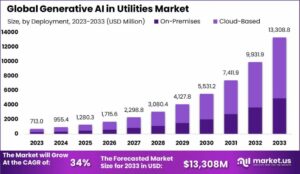
The Global Generative AI in Utilities Market is poised for significant growth, anticipated to expand from 713 million in 2023 to around $13.308 billion by 2033, showcasing a Compound Annual Growth Rate (CAGR) of 34% during the forecast period from 2024 to 2033. (source)
Company Watch
Intel, Qualcomm, Google Reportedly Form Alliance, Posing Challenges to NVIDIA’s Dominance in AI?
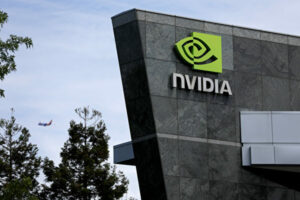
In a bold move, Intel, Qualcomm, Google, and a cohort of over a hundred startups are reportedly banding together to challenge NVIDIA’s stronghold in the AI market. This consortium’s mission is to break the near-monopoly NVIDIA has enjoyed with its CUDA software platform—a tool integral for developers in leveraging GPU power for AI and other intensive applications.
Since its inception in 2006, CUDA has become a staple in academia, making it the go-to platform for aspiring AI engineers. However, this dominance is now seen as a bottleneck for innovation by some of the industry’s biggest players. The formation of the “UXL Foundation” marks a significant effort to democratize the development of AI applications by advocating for a shift towards a more open and diverse computing ecosystem.
The foundation’s strategy hinges on promoting Intel’s oneAPI technology, a move designed to ease the development process across various AI accelerator chips, thus lowering the entry barriers for developers working with different hardware platforms. The initiative is not merely about offering alternatives but is aimed at fostering an environment where efficiency, productivity, and choice in hardware are paramount.
Key figures like Vinesh Sukumar from Qualcomm and Bill Magro from Google have expressed their organizations’ commitments to guiding developers away from NVIDIA’s ecosystem towards more open, unified platforms. Despite the ambitious goal, experts like Jay Goldberg of D2D Advisory caution that displacing CUDA’s entrenched position in the market will be a monumental task, given its 15-year legacy and the vast ecosystem of applications and code developed around it.
The UXL Foundation plans to finalize its technical specifications within the first half of the year, with hopes to further refine these details by year’s end. This collaborative endeavor could mark a significant shift in the landscape of AI development, challenging the current paradigm and potentially accelerating innovation across the tech industry.
Practical AI
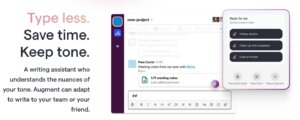
Augment: Need a personal assistant? Augment helps with scheduling, summarizing content, booking travel, and creating lists, adapting to user workflow and preferences.
———————————————————————————————————————————————————————————————————————————————————————————-
Thanks for reading. Until next weekend!
For questions and feedback, email us at marketing@talpoint.com. We would love to hear from you.




